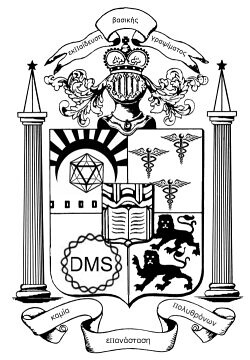At the White Coat Ceremony the Gold Foundation for Humanism in Medicine gave us two books. One of them is On Doctoring, a collection of stories, poems, and essays about medicine. It's unobjectionable. The other is Powerful Medicines: The Benefits, Risks, and Costs of Prescription Drugs. 70% of primary care medical visits result in a prescription, and thus it's important that we get it right.^1 The conceit that this book is essential or useful needs to be examined more thoroughly.
This is going to be a fairly lazy book report. The first thing I'm going to do is take a poke at the author. Actually, the only thing I have on him is that he's been at Harvard since 1969 (p 231), and he's still only an associate professor. This is probably because he's too busy running the Pharmacoblahblahblah divisions at The Brig so it probably doesn't signify.^2
I would, however, like to take aim at Bernard Lown, M.D., winner of the Nobel Peace Prize and possibly one of the biggest malpracticers in medical history. A bit of background: Your heart has a normal rhythmic beat. In some people, a heart attack or other some such causes the heart to become very a-rhythmic. These people are at high risk of keeling over with no warning, a phenomenon known as "Sudden Cardiac Death." As it turns out, if you study most people, we have a few arrhythmic beats per day. Lown (and many others) figured that if a lot of arrhythmic beats are bad, a few are still a problem. Lown proposed that treating mild arrhythmia would prevent Sudden Cardiac Deaths. With no evidence other than Lown's say-so, thousands of physicians began prescribing the treatment for mild arrhythmias. When a clinical trial was finally conducted, they found out that the treatment caused sudden cardiac deaths, rather than preventing them.^3,4 The whole story appears in Deadly Medicine: Why Tens of Thousands of Heart Patients Died in America's Worst Drug Disaster. Deadly Medicine calculates that around 50,000 excess deaths occurred because of Lown's conjecture. However, a 1997 paper argues that no extra deaths appear in the epidemiology as a result of doctors trying to suppress mild arrhythmias.^5 Regardless, Lown hectoring about the need for evidence-based medicine is pretty rich.^6 It's also interesting to note that Lown is a (the?) senior physician at The Brig, and thus in some way Avorn's boss.
Next post: The problems with the content (as opposed to the dust jacket).
1a. What this means: You have a problem that you decide needs medical attention. You visit your family doctor, pediatrician, internist, woman doctor. There is a 70% chance that this individual will prescribe you something. This doesn't include getting referred to the dermatologist and the derm. giving you something.
b. Factoid from Clinical Skills - 75% of diagnosis are made on the basis of history alone, and 90% are made from a combination of history and physical exam. History is everything the patient says. Physical exam is where you take weight, height, blood pressure, get your knee tapped etc. etc. This seems to imply that most prescriptions are given on the basis of minimal information. You may argue that for someone with high-blood pressure, not many tests are necessary besides taking their blood pressure during the physical exam. I would counter that a lot of people are getting prescriptions for antibiotics without getting a culture taken to see if they actually have a bacterial infection. Over-prescription of antibiotics leads to antibiotic resistance, so this is not an academic problem.
2. The Brig (and indeed any of the Harvard Hospitals) is considered one of the most desireable places to go for residency.
3. Everyone was so convinced that arrhythmia suppression worked that they wouldn't enroll their patients in a trial and risk them getting a placebo. At a conference where the primary investigator was describing the results, one of the attendees stood up and said, "You are immoral!" (this is from Deadly Medicine).
4. Pratt CM, Moye LA. The Cardiac Arrhythmia Suppression Trial: background, interim results and implications. Am J Cardiol. 1990 Jan 16;65(4):20B-29B. PubMed
5. Anderson JL, Pratt CM, Waldo AL, Karagounis LA. Impact of the Food and Drug Administration approval of flecainide and encainide on coronary artery disease mortality: putting "Deadly Medicine" to the test. Am J Cardiol. 1997 Jan 1;79(1):43-7. PubMed
I know nothing of epidemiology, but their method seems rather unsophisticated, especially given what Avorn says about epidemiological research.
6. Lown's quote is actually about "the corrosive effects of commerical influence... Thus, to poke fun at him for this, I have to go into how his arrhythmia suppression hypothesis required the development of new, more easily tolerated, drugs to give to patients that didn't feel ill. It was because of this theoretical market that the drug companies chose to develop the new drugs. Lown's hypothesis provided the rationale under which they were able to sell their drugs to more patients, including those outside the category for which the drugs were initially improved. Thus, Lown arguing about the need for evidence-based medicine is rich, as is Lown arguing about the corrosive effects of commercial influence.
Subscribe to:
Post Comments (Atom)

1 comment:
That's ... um ... comforting
Post a Comment